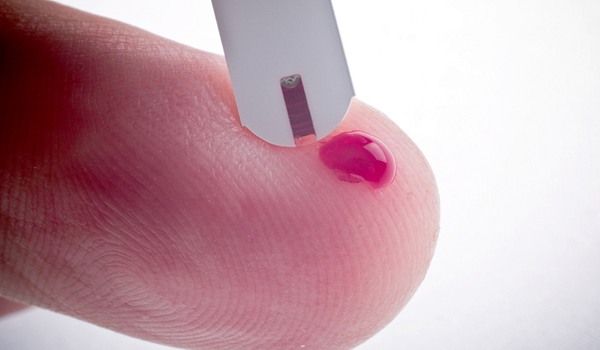Diabetes Drug Metformin May Lower Risk of Pancreatic Cancer for Women

Increasing evidence is suggesting that Type 2 diabetes and pancreatic cancer are somehow linked, but exactly how the link works remains unclear.
A new study may help clarify things — it shows that taking a drug aimed at treating Type 2 diabetes may change a person's risk of developing pancreatic cancer, depending on the drug.
Though some research has shown those with Type 2 diabetes are at an increased risk of developing pancreatic cancer, the new study found that women who took metformin, now the most common treatment for Type 2 diabetes, had a lower risk of pancreatic cancer than the general population. In contrast, women who took drugs from an older class of diabetes treatments, called sulfonylureas, had a higher risk of the cancer, according to the study.
For men, insulin use was linked with a slightly increased risk of pancreatic cancer.
The gender differences surprised the scientists at the University of Basel in Switzerland, who conducted the research. "This result is somewhat unexpected, and could not be explained by confounding use of estrogens," they wrote in the paper, which was published Jan. 31 in the American Journal of Gastroenterology.
Previous, smaller studies have found decreased risk of pancreatic cancer in people taking metformin, but the results of those studies did not consider the genders separately.
Diabetes and pancreatic cancer
Get the world’s most fascinating discoveries delivered straight to your inbox.
About 26 million people in the U.S. have Type 2 diabetes, and that number could double or even triple over the coming decades, according to the Centers for Disease Control and Prevention.
Previous work has reported an overall increased risk of pancreatic cancer in diabetes patients, and researchers have suggested that, among risk factors that are affected by a person's behavior, having Type 2 diabetes is the third most important risk factor for pancreatic cancer, behind smoking and obesity.
Metformin has been linked with a decreased risk of breast and ovarian cancers in other studies.
In the new study, researchers turned to a database of patient records in the U.K. to look at the drug's association with pancreatic cancer. They analyzed patient histories, including prescriptions, diagnoses of cancer and diabetes, and records of smoking and alcohol consumption.
The team based their findings on the records of 2,763 patients eventually diagnosed with pancreatic cancer and 16,578 control participants from the general population who didn't have the cancer, but were matched to the study participants in terms of their age and other factors.
Overall, the researchers found no link between metformin use and pancreatic cancer. However, when they looked at each gender separately, they found that women who developed pancreatic cancer were half as likely to have taken metformin for at least three years compared with women who didn't have pancreatic cancer.
On the other hand, women with pancreatic cancer were three times as likely to have taken sulfonylureas for at least three years compared with those who didn't have pancreatic cancer.
The link between diabetes itself and pancreatic cancer is one that's been hard to sort out, said Dr. Christopher Forsmark, a gastroenterologist at the University of Florida College of Medicine and previous president of the American Pancreatic Association.
"There's a curious connection between Type 2 diabetes and pancreatic cancer," said Forsmark, who was not involved with the new study. "A lot of people who get pancreatic cancer develop diabetes at the time they get the cancer. But there's also some data that folks who had long-standing diabetes might have a somewhat increased risk of getting pancreatic cancer."
Still, the new study found that the overall rates of pancreatic cancer were similar for those who had diabetes and those who didn't.
Targeting metabolic syndrome
Forsmark said that the differing effects of the diabetes drugs on pancreatic cancer risk could lie in the fact that metformin treats a more underlying cause of diabetes. Fat cells throughout the body secrete a variety of chemicals into the body that may promote cancer growth, and metformin aims to treat diabetes by targeting these cells, rather than by simply increasing the body's insulin levels, as other drugs do.
But more work is needed to better understand the connection between diabetes and pancreatic cancer.
The slight changes in pancreatic cancer risk seen in this study are not large enough to change the way doctors treat diabetes, Forsmark said.
Most diabetic patients, he added, have a much higher chance of developing complications from high blood sugar and untreated metabolic syndrome than they have of developing pancreatic cancer.
Pass it on: A new study suggests that treating an underlying cause of Type 2 diabetes may lower pancreatic cancer risk for women.
Follow MyHealthNewsDaily on Twitter @MyHealth_MHND.
